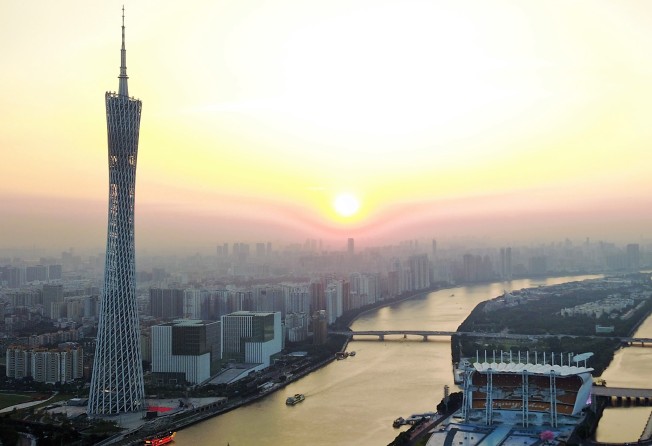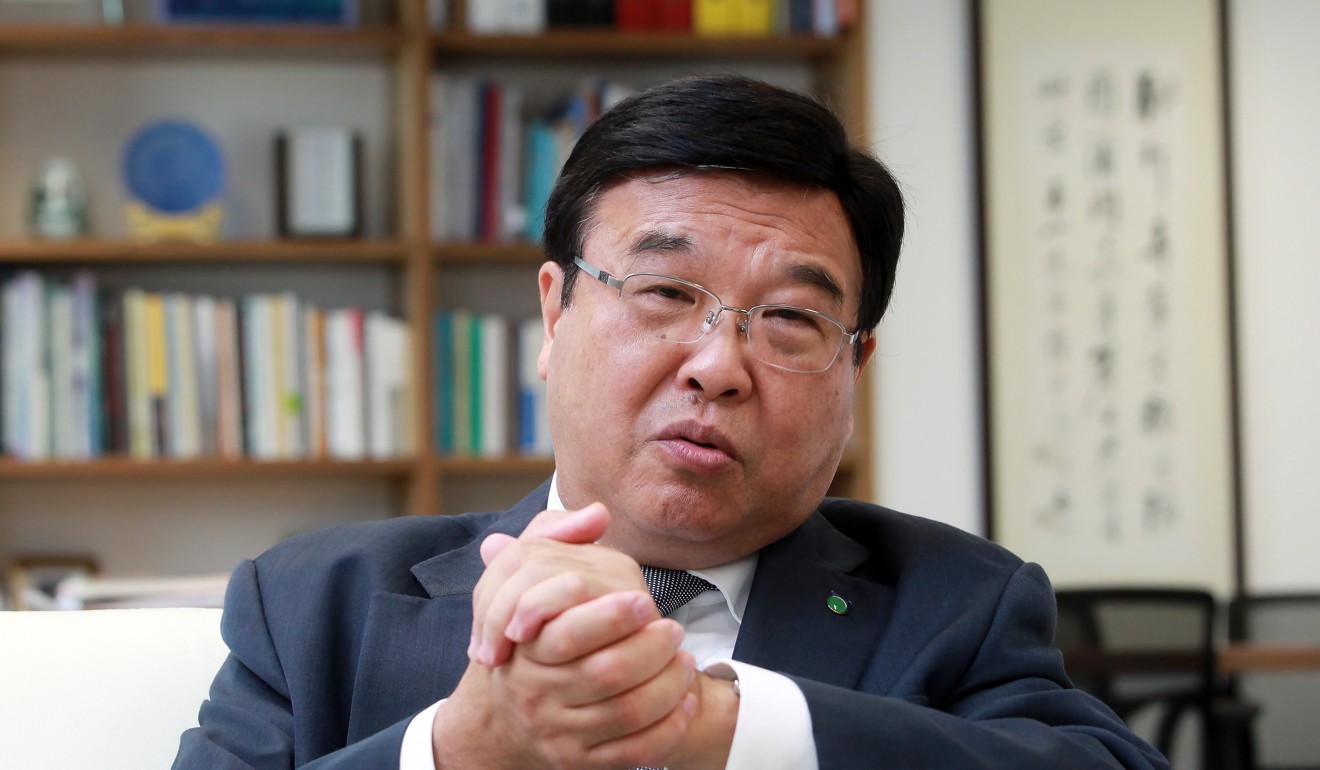China’s answer to Silicon Valley: too much talk and not enough action, official complains
Wang Rong, provincial CPPCC chairman in Guangdong, says working with Hong Kong and Macau means dealing with ‘one country, two systems and three customs zones’

A top Guangdong official on Thursday said the province’s cooperation with Hong Kong and Macau involved more talk than action, and a state leader should lead the Greater Bay Area project to successfully forge an economic powerhouse across the two cities and nine mainland ones.
Wang Rong made the uncharacteristically frank comment as he unveiled a six-part strategy to press forward with the Greater Bay Area plan, a day after President Xi Jinping called on Guangdong leaders to focus on the project and also lead the charge for China’s “full opening up”.
He was among 13 delegates representing different sectors and industries who spoke at a plenary meeting of the nation’s top advisory body, the Chinese People’s Political Consultative Conference (CPPCC).
Wang is chairman of the provincial CPPCC in Guangdong, a role he has held for three years.
While other delegates spoke about economic reform, the environment and public finance, Wang focused on the Greater Bay Area plan.
He said the project covered “a densely populated area with huge economic potential”, but six things needed to be done to make it successful: a national-level coordination mechanism, policy reform, technological innovation, social support, as well as improvement in transport networks and public services.
It is rare for mainland officials to be critical of their exchanges with their Hong Kong counterparts but Wang said: “Guangdong, Hong Kong and Macau come under one country, two systems and three custom zones … There were often many meetings, dialogues, and complicated etiquettes, but little strength in pushing things forward pragmatically, or systems in consolidation.”
The former Shenzhen party secretary from 2010 to 2015 suggested having a coordination agency led by a state leader, who would work with the relevant bureaucrats at the national and city level to move the project along.
Wang also proposed making it easier for Hongkongers and Macanese to stay in his province, echoing earlier comments by Xi and other state leaders who said Beijing would implement policies to make living, working and studying on the mainland more convenient for Hong Kong people.
Wang said: “As more and more young people from Hong Kong and Macau are studying and working in the mainland, I propose appropriately relaxing the restrictions for them to purchase flats, and simplifying the procedures for them to seek employment.”
Wang also suggested an alliance of universities in the region to encourage technological innovation and research.
On Wednesday, Xi met with a Guangdong delegation attending the annual legislative sessions in Beijing. He said the province should develop new institutional infrastructure for high-quality growth, build a modern economy and improve collaboration when it came to innovation, among other things. He also told Guangdong to work with Hong Kong and Macau on the Greater Bay Area plan.
China’s state planner, the National Development and Reform Commission (NDRC), is set to release detailed plans for the project next month.
Irons Sze Wing-wai, honorary president of the Chinese Manufacturers’ Association of Hong Kong, agreed with Wang’s proposal.
The CPPCC delegate said the body should be led by a vice-premier.
“There are nine mainland municipal governments involved, and some officials might be more senior than the NDRC’s director,” Sze said.
“A Shenzhen official also once complained to me that there were too many bureaus or departments for them to contact when working with Hong Kong.”
Shenzhen University president Li Qingquan, who also attended the CPPCC plenary session, said there should be a“Guangdong-Hong Kong-Macau joint university”.

This institution could benefit from the abundance of funding on the mainland, and the low tax and tariff rates in Hong Kong, which would help to attract foreign professors, among other benefits.
Wong Yuk-shan, president of the Open University of Hong Kong, said he hoped Beijing would urge universities across the country to cooperate more in technological research.